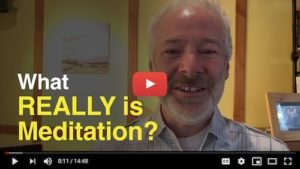What’s the difference between Meditation and Contemplation?

However, in the past in Christian history, there were stages of growth and study that were typically laid out as follows (and think of these as a type of progression):
- Scripture Reading (study). This is also known as Lectio divina and is an important practice. Also called devotions by other Christians, it’s a prayerful reading of the Bible and it’s an important part of spiritual growth.
- Meditation (thinking/pondering). If you read about meditation as a type of “chewing the cud”, or digesting scripture, this is what is being talked about. To meditate on the Word. In history this was when you thought about and pondered the meaning of the scripture that you read in step 1.
- Prayer. Now, you approach God, in the light of what you’ve read in scripture and reflected upon and pray in the context of what you have learned. You open up yourself and lay out your needs, your concerns, feelings or desires before God. It’s us talking to him about what we’ve been prompted to, or led to, through the previous steps.
- Contemplation (stillness). After having brought our needs and desires before God, contemplation is that act of sitting before God. Trusting him, resting in him. This is what “Be still and know that I am God” is talking about.
So, you can see that there’s a little confusion in terminology that’s developed over time. If you read books from Christian history, it’s helpful to keep these distinctions in mind. And the opposite is true, modern day speech uses the word meditation to mean stillness, rather than thinking or pondering even though I hear people mixing up the terms.
Sometimes there seems to be a false distinction between “meditating on the Word” and “meditating as stillness” as though the former is permitted and the latter is not.
But this is simply not true.
There is a spectrum of experience in the Christian life and each has it’s place just like in the health world there is cardio exercise, weight lifting, diet, supplementation, etc. Each one has it’s place and is for a different purpose.
Sometimes, if you’re weak in an area, you might hire a trainer that specializes in that area, say weight lifting in this example. They may not teach you about nutrition, but that doesn’t mean it’s not important.
The same is true with meditation/contemplation (stillness) – that’s what we do here at Meditate On Christ. I teach stillness, but by no means does that diminish the other spiritual disciplines… they all work together.
[content_band style=”color: #333;” bg_color=”#e4e1ce” border=”all” inner_container=”true”]Free Video Training: I’ve created a special 14 minute training that gets into all the specifics and details about what meditation REALLY is. Click here to get the training now.[/content_band]
I’ve created a special 14 minute training that gets into all the specifics and details about what meditation REALLY is. Click here to get the training now.[/content_band]






The stillness concept works well with me a born and bread PENTECOSTAL. But, many with other spiritualistic backgrounds it may lead to other aspects other than Bible teaching. Thanks for the balanced teaching.